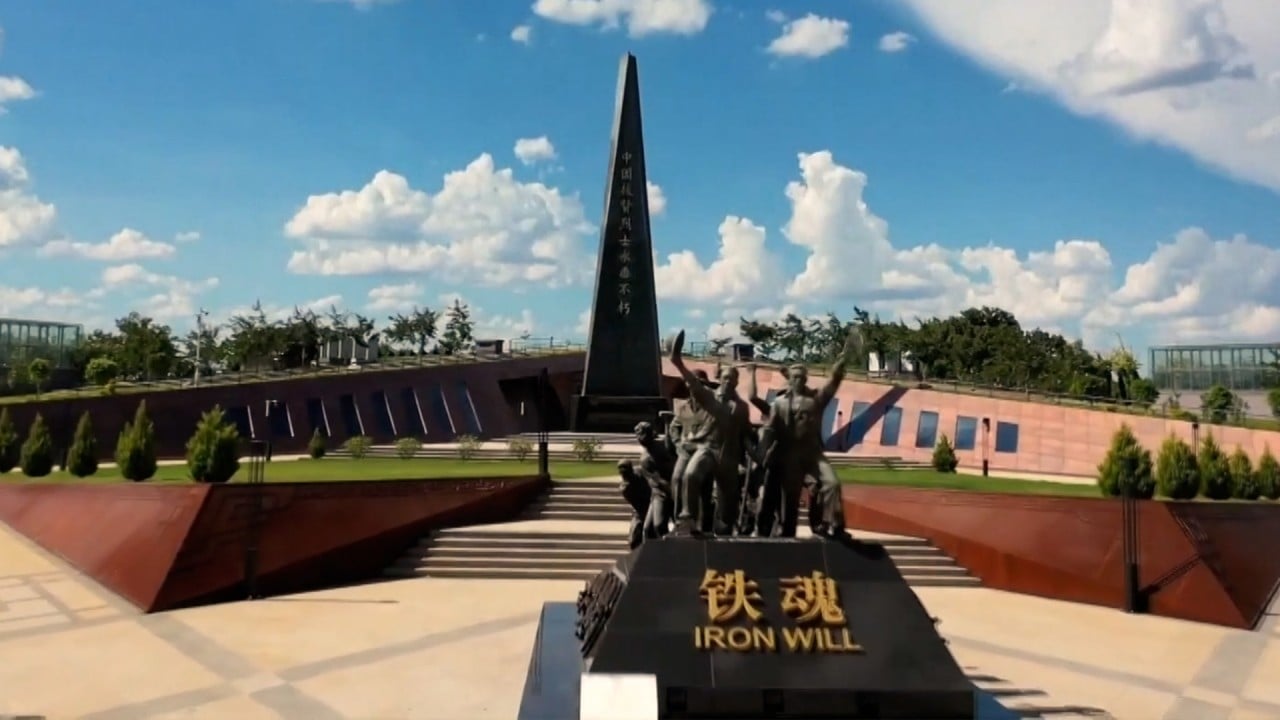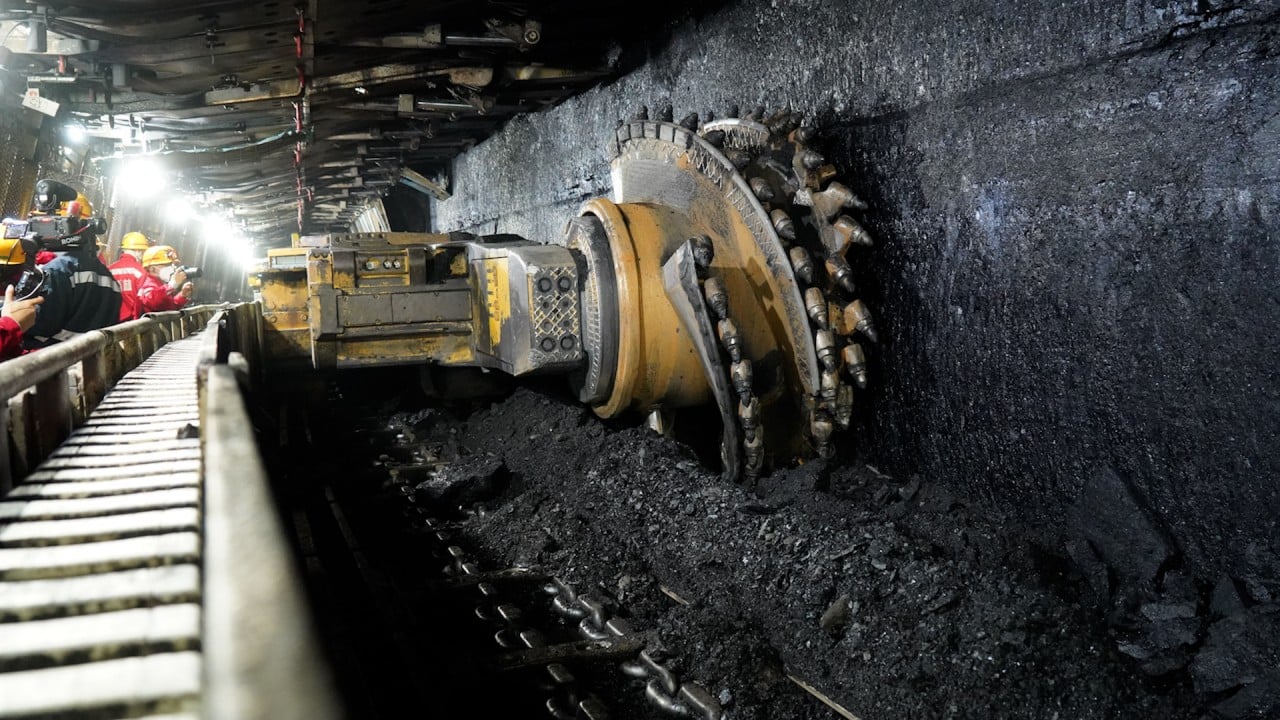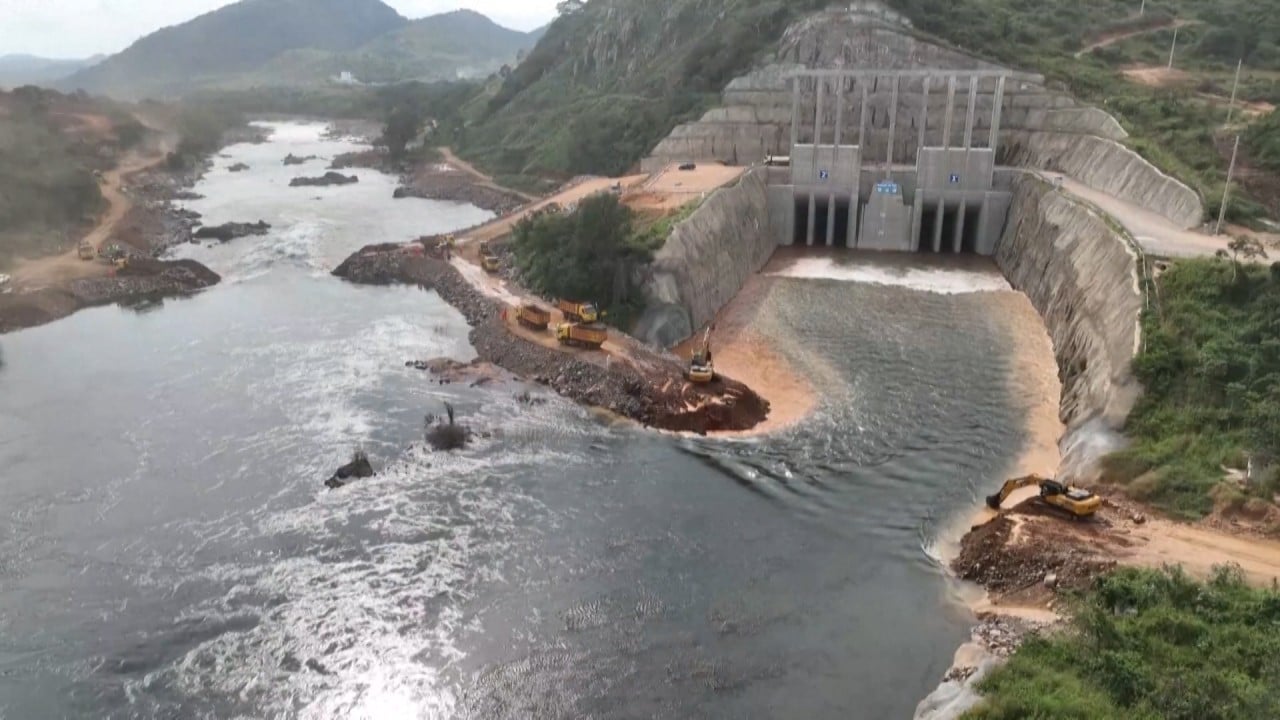
Why China gives Africa’s leaders the red-carpet treatment – and a chance to ask for favours
- Often snubbed in the West, African officials are feted during trips to Beijing, giving them opportunity to secure mega-project funding and debt deals
- However, observers say China is increasingly conservative in its promises to the continent’s politicians
Eritrea is heavily sanctioned by Western nations for alleged human rights abuses but Xi told Afewerki that Beijing “opposes external interference in Eritrea’s internal affairs and the imposition of unilateral sanctions”.
The grand receptions in Beijing are not just a show of hospitality but a chance for African leaders to secure support for major infrastructure projects and push for resolution of debt and trade issues, though analysts say the trips now bring more modest benefits than in the past as China pares down its promises to the continent.
All of China’s modern presidents – Xi included – have fine-tuned this into a diplomatic art form to foster positive sentiment, cultivate feelings of reciprocity, and win favourable agreements, according to Paul Nantulya, a China-Africa expert at the Africa Centre for Strategic Studies at Washington’s National Defence University.
African leaders believe that if they get a face-to-face meeting with the Chinese president, they are more likely to have issues resolved or requests granted.
Zambia, which defaulted on its external debt in 2020, owed Chinese creditors about US$6 billion of a total external debt of US$18.6 billion as of the end of 2022, making China its largest official bilateral lender. Beijing has yet to announce a visit by Hichilema, but the Zambian leader has said a meeting with Xi would expedite the debt relief process.
African leaders also want to visit China because they believe China is more amenable to investing in areas where Western countries have either been entirely absent or highly reluctant to take part fully in infrastructure such as roads, railways, airports, ports, and energy projects such as hydropower dams and solar, according to Nantulya.
Other African leaders to receive first-class treatment in China in recent months include Tanzanian President Samia Suluhu Hassan, President of Gabon Ali Bongo Ondimba and Ivory Coast Prime Minister Patrick Achi.
Besides heads of state, China has also recently welcomed the foreign ministers of Ethiopia, the DRC, Zimbabwe and Sierra Leone.
And the travel goes in both directions, with several high-ranking Chinese diplomats and officials visiting the continent this year.
Since becoming president a decade ago, Xi has visited sub-Saharan Africa three times – first in March 2013, when he visited Tanzania, the Republic of Congo and South Africa, then in 2015 to Zimbabwe and South Africa, and finally a trip to Senegal, Rwanda, South Africa and Mauritius in 2018. He has also visited North Africa once, travelling to Egypt in 2016.
In total, US presidents have only visited 16 of Africa’s 54 countries since 1943, and US secretaries of state on average visit six African countries every two to three years, according to the US Department of State.
The last US president to visit sub-Saharan Africa was Barack Obama, who visited the region four times during his eight years in office.
However, US President Joe Biden wants to reverse Washington’s lack of engagement with the continent and last year hosted the US-Africa Leaders Summit, where he pledged US$55 billion to fund the continent’s infrastructure over three years and promised to send more American leaders to African countries. Since then, several US officials, including the vice-president, secretary of state and treasury secretary, have visited the continent.
Nantulya said between 2008 and 2018, Chinese leaders at various levels visited Africa 79 times and African leaders visited China 222 times. “Hence, the visits are much more than mere symbolism,” he said.
“All this goes to show how institutionalised and structured the China-Africa relationship really is regardless of who occupies China’s top offices. One can therefore predict that the future of China-Africa relations rests on a foundation that has been built over a long period of time. It is not an ad hoc relationship or a mere series of events,” Nantulya said.
At an Africa Day reception in Beijing last month, Qin said China-Africa relations had grown with the “acceleration button” on and entered a fast track towards a “new era of a stronger China-Africa community with a shared future”.
He said China and Africa enjoyed close friendly exchanges and “ever-deepening win-win cooperation”, and that “leaders of the two sides visit each other as often as relatives do”.
Zhou Yuyuan, deputy director of the Centre for West Asian and African Studies at the Shanghai Institutes for International Studies, said China-Africa cooperation had made significant contributions to the continent’s development, including improving transport and energy infrastructure, electricity, industrial development and job creation.
“The reality has proven China a credible friend and partner,” he said.
Zhou added that because of multiple internal and external shocks, African countries faced severe development and security challenges and might want China to play a more positive role on a bilateral, multilateral and international level.
“China has given high importance to building close ties with Africa, as we can see the rapid development and significant progress of China-African cooperation in the past decades,” Zhou said.
Bagwandeen said China, which aimed to be a global leader in renewable energy, wanted to secure the lion’s share in the scramble for Africa’s critical minerals, which are necessary for the transition to a low-carbon economy.
“With the US showing that it is willing to challenge China in international [forums], such as at the UN, China needs to maintain and shore up relations with African states.
“China knows very well how decisive the African vote can be in multilateral settings,” Bagwandeen said, pointing to Beijing’s experience unseating Taiwan at the UN in 1971.
Benjamin Barton, an associate professor at the University of Nottingham Malaysia, said that given China’s role as a rising power and key constituent of the Global South, “it is very much in the interest of African leaders to maintain cordial ties with a country which may, in the not-so-distant future, play an even more determinant role in global politics than it currently does”.
Barton said there was a sense that the conflict in Ukraine and attempts by the West to isolate Russia internationally, as well as Russian counter-diplomacy to legitimise its war effort, had spurred the Chinese foreign policy establishment into action in Africa.
But despite the pomp and pageantry of African leaders’ visits, some have left China without the goodies – such as mega-project funding – they could expect just a few years ago.
Bagwandeen said the Chinese economy was still reeling from the impact of Covid-19, and many African nations were struggling to make repayments on their Chinese loans, which had likely made Beijing wary of lending to countries on the continent.
“This in no way means that China will completely stop lending – it just means that it will be more prudent and is likely to favour smaller commercial lending packages worth millions instead of billions of dollars,” she said.
Nantulya said China had become more cautious and risk-averse when it came to certain types of aid it had previously given liberally to its African partners. For example, despite major overtures by Kenya, China has held firm in refusing to take part in the extension of the Chinese-built and financed Mombasa-Nairobi-Naivasha Standard Gauge Railway to Malaba on the Ugandan border.
“The nature of talks may be leaning more towards issues of debt restructuring, solvency and relief than simply new and unfettered lines of credit and trade creation,” he said.




